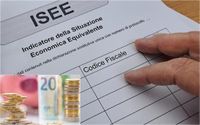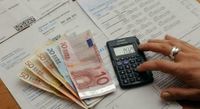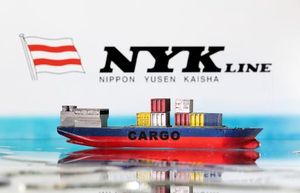As of April 3, 2025, significant changes have been made to the Italian economic support system aimed at families with an Equivalent Economic Situation Indicator (ISEE) below 20,000 euros. This adjustment allows government bonds, postal savings bonds, and postal savings books to be excluded from the ISEE calculation, potentially broadening access to various bonuses and subsidies for those in financial need.
The Italian government has been actively working to provide financial assistance to families facing economic hardships, particularly those with lower ISEE values. The recent changes are expected to positively impact access to essential support measures, including the social bonus for utility bills, the universal allowance, and the psychologist bonus, among others.
To benefit from these measures, families must first obtain their ISEE certification by completing the Single Substitute Declaration (DSU). This document collects personal, income, and asset information necessary to assess the economic situation of the household. Families can complete the DSU online through the INPS (National Institute of Social Security) portal or with assistance from tax assistance centers (CAF), which offer free services based on agreements with INPS. Following the recent changes, INPS has released new forms to streamline the application process.
One of the most significant aids is the social bonus for utility bills, which offers substantial discounts on electricity, gas, and water bills for families in economic distress. The eligibility for this bonus is capped at an ISEE of 9,530 euros, but for families with three dependent children, the threshold increases to 20,000 euros. Additionally, starting April 1, 2025, a one-time contribution of 200 euros for electricity bills has been introduced for families with an ISEE up to 25,000 euros. According to estimates from Minister of the Environment and Energy Security Gilberto Pichetto Fratin, this initiative is expected to support around 8 million families.
Another notable measure is the recently unlocked appliance bonus, which provides a subsidy of up to 30% of the purchase price for energy-efficient appliances rated class A or higher. This bonus has a maximum limit of 100 euros, increasing to 200 euros for families with an ISEE below 25,000 euros. The incentive aims to promote the purchase of more efficient and sustainable appliances, contributing to a greener environment.
The universal allowance, known as the 'Assegno unico universale', is designed for families with dependent children, including minors, newborns (starting from the seventh month of pregnancy), and young adults up to 21 years old who meet specific conditions. It is also applicable to children with disabilities, without age limits. The amount varies based on the ISEE and the age of the children, ranging from a maximum of 201 euros for minor children with an ISEE up to 17,227.33 euros to a minimum of 57.5 euros for those with an ISEE equal to or greater than 45,939.56 euros or for those who do not present an ISEE.
For mothers without access to other maternity benefits, the basic maternity allowance, known as the "assegno di maternità dei Comuni," must be requested from local municipal authorities. The amount, which is standardized across the country, is adjusted annually for inflation. In 2025, the allowance is set at 407.40 euros per month for five months, with an ISEE threshold of 20,382.90 euros to qualify.
The 'Carta Dedicata a Te' (Dedicated to You Card) is another financial support measure, providing a prepaid card worth 500 euros for families with an ISEE up to 15,000 euros, intended for purchasing essential goods. Additionally, the 'Carta Acquisti' (Purchase Card) offers 80 euros every two months to individuals over 65 or parents of children under three years old, provided their income is below 8,000 euros. This card can be used for buying food, health products, and paying utility bills.
For families seeking childcare support, the nursery bonus varies based on the ISEE for minors. Families with an ISEE up to 25,000 euros can receive up to 3,000 euros annually; those with an ISEE between 25,001 and 40,000 euros can obtain up to 2,500 euros, while families with an ISEE over 40,000 euros can access a maximum of 1,500 euros per year.
Furthermore, the psychologist bonus has been renewed for 2025 with a funding allocation of 9.5 million euros. Families with an ISEE under 15,000 euros can request up to 1,500 euros to cover psychotherapy expenses. For those with an ISEE between 15,000 and 30,000 euros, the maximum amount drops to 1,000 euros, and for families with an ISEE between 30,000 and 50,000 euros, it further decreases to 500 euros.
In light of these developments, the 2025 'Decreto Bollette' (Bill Decree) has also been approved by the Chamber of Deputies and is set for a swift second reading in the Senate. This decree includes initiatives aimed at supporting families and businesses against rising energy costs while improving market transparency and enhancing the powers of regulatory authorities. The decree recognizes the role of utility managers, professionals tasked with managing domestic and business utilities, to assist consumers and businesses in monitoring and optimizing their supplies.
With the new measures in place, the Italian government aims to provide crucial support to millions of families facing economic challenges, ensuring that they have access to necessary resources and assistance. As these initiatives roll out, families are encouraged to stay informed about their eligibility and the application processes to maximize the benefits available to them.








